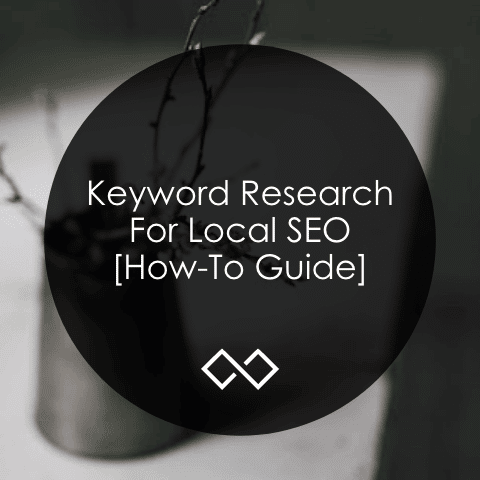What’s the best way to conduct keyword research for local SEO? This step-by-step guide makes understanding the process simple.
When you’re building your business’s online presence, you need to implement an SEO strategy. SEO, or search engine optimization, optimizes your website for search engines so that it appears on the search results page when your potential clients or customers search for the services you offer. If your website pages aren’t optimized, the search engine can’t understand their content as well and is less likely to show them on the results page.
We have hundreds of blogs on SEO. If you’re looking for a good introduction to the basic concepts, I recommend this one or this one.
Today, we’re getting more specific and diving into keyword research for local SEO.
What is Local SEO?
Terms to Know:
- National SEO: A national (or traditional) SEO strategy is built with keywords that generally don’t have location identifiers.
- Local SEO: A local SEO strategy is built with keywords that generally have location identifiers, like specific cities or regions.
- Keyword research: The process of finding and analyzing the specific search terms that users enter into search engines.
SEO strategies ensure your business shows up at the top of search results when people search for certain keywords. The strategy that you implement really depends on the kind of business you’re running and your target market.
For our agency, we primarily work with local businesses that provide services to their clients or customers. Because they’re local, service-based businesses, they usually need to find customers that are local to them.
This means their target market will be people searching for these local keywords. When you’re running a business in Orlando, you don’t want to be appearing in search results for people looking for services in another state.
Keyword Research for Local SEO [How-To Guide]
Step 1: Do Your Homework
Before you start researching keywords, make sure you have a thorough list of the products or services your business offers. If you’re an electrician, you may think that ‘electrician’ is the only thing people are searching for. The fact is that users often search for a wide variety of services that you offer, and you want your website to appear for all of them!
Some keywords to consider (depending on your services) might be:
- Licensed electrician
- Electrical repair
- Electrical panel inspection
- Electrical lighting installation
- Home rewiring
- And more!
Step 2: Find Search Volume
Once you have a good start with your keyword list, you will want to research the search volume for each keyword. This just means the average number of users who are searching for the keyword, and there are several tools out there that you can use.
The Google Ads Keyword Planner shows search volume, as well as other free or pro keyword research tools like Moz Keyword Explorer.
Don’t be discouraged if some of your keywords have low average search volume. It’s good to include a mixture of keywords and keyword volume into your strategy, since the lower volume keywords can sometimes bring in stronger leads to your business if they are highly-specific keywords to the services you offer.
Step 3: Define Your Service Area
Now that you’ve defined the keywords you’re going to use, you should choose several service areas to target. If you’re in Orlando or another large city, you may want the homepage of your website to rank for that city. Following our electrician example, you would probably want your homepage to rank for ‘Orlando electrician.’
What do you do with your other keywords and additional cities you want to rank in? That’s what comes next.
Step 4: Create and Optimize Content
So your homepage is ranking for the keyword you want in the city you want it to, what about the other keywords and locations? You can’t rank for everything on one page, and that’s where content and a built-out website come in.
You should optimize each of the pages on your website for a related keyword, and for the others, you can start creating additional pages and writing blogs. Blogs are a great way to include more keywords on your website and provide visitors with information about your business and the products or services you offer.
Step 5: Track Your Results
You don’t want to go through all this work for nothing, so you will want to track your keywords and see the traffic and leads they’re bringing to your website.
One great, free way to access the tools to do this is through Google Analytics. Not only will you see the results of your efforts, but checking progress also gives you the opportunity to adjust as needed.
Looking for Impactful Local SEO?
Keywords and keyword research are only a small part of a comprehensive local SEO strategy. Our agency specializes in marketing strategies for local, service-based businesses, and we have the tools and skills to drive growth. Schedule a complimentary call with us to learn more about how we can help!





